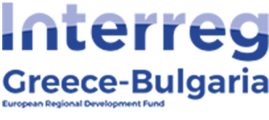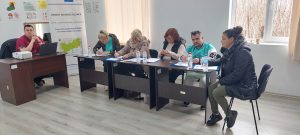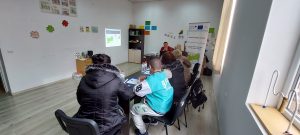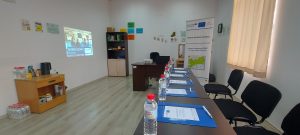A regular meeting of the Business Council was held in the Agro-food industry sector
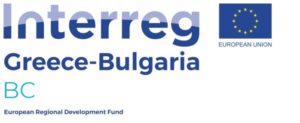 On 25.02.2022, at 11:15 a.m., a regular meeting of the Business Council was held in the town of Simitli in the Agri-food sector in the border regions of Blagoevgrad, Haskovo, Kardjali and Smolyan, and the activity was carried out under the project "Business Council - BC 6275 ” financed by the INTERREG V/A GREECE-BULGARIA 2014-2020 program, Subsidy contract No. B6.3a.18/13.04.2021.
On 25.02.2022, at 11:15 a.m., a regular meeting of the Business Council was held in the town of Simitli in the Agri-food sector in the border regions of Blagoevgrad, Haskovo, Kardjali and Smolyan, and the activity was carried out under the project "Business Council - BC 6275 ” financed by the INTERREG V/A GREECE-BULGARIA 2014-2020 program, Subsidy contract No. B6.3a.18/13.04.2021.
There were five representatives of the sector from the border regions of Haskovo, Kardzhali, Blagoevgrad and Smolyan. The hall for holding the meeting was secured technically, being equipped - multimedia, portable computer, printer, as well as information boards, banner and presentation materials, according to the requirements of the Communication and Publicity Guide of the Interreg V/A Greece-Bulgaria 2014-2020 program . In addition, disinfectants were provided, as well as water, coffee and tea to ensure the event's coffee break.
The moderator of the event welcomed all present and a proposal was made to introduce the new members of the BS.
The discussion held by the participants in the current meeting of the business council covered the new environmental practices that are laid down in the new strategic plan for the development of agriculture 2023-2027 and the Green Deal.
A challenge for council members will be the increased requirements for introducing ecological practices in agriculture. Part of the conditions for obtaining subsidies will be a reduction in the use of pesticides, a reduction in soil erosion by changing the technology of agriculture and a number of other measures. These are just some of the problems that farmers have to deal with.
Good practices in developed European countries show that these changes and innovations, even if they make it difficult for producers at the moment, are the right way to build a more sustainable agriculture that produces cleaner and better quality food for consumers.
A member of the council highlighted the fact that in a number of sectors such as grain production, for example, Bulgaria competes in global trade with a country such as Ukraine, which, due to a number of factors, including the lack of regulatory frameworks of the European Union, has a significantly lower production price. The same is the case with fruit growing - the cultivation of traditional Bulgarian varieties is rendered meaningless by the import of cheap fruits and vegetables from countries without regulatory frameworks.
BS members were presented with several technological solutions that can help them comply with environmental norms without reducing yields and with minimal increases in costs.
A small part of the examples of such decisions are the so-called spot spraying – use of cameras and artificial intelligence to apply plant protection products only in the affected areas of the field, spraying drones and others.
BS came up with a decision to conduct an information campaign through which farmers would be introduced to new technologies that could be useful to them.



